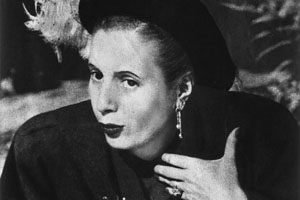In July of 2007, in the context provided by the X Ibero-American Summit of Ministers of Culture held in Valparaiso, the Bicentennial Group was formed. It is made up by Argentina, Bolivia, Colombia, Ecuador, Mexico, Venezuela and Chile, nations that began their emancipation process from the Spanish crown between 1809 and 1811.
The Bicentennial Group has gathered in Chile (December of 2007) and in Bolivia (May of 2008) and its objective is to coordinate some joint activities aimed at a continental wide commemoration of the Independence Bicentennial of Latin American countries.
In this body, each of the participating countries is represented by delegates from the commissions or committees formed by each government for the Bicentennial. Also, it counts with the support of the Iberoamerican General Secretariat (SEGIC), the Organization of Iberoamrican States for Education, Science and Culture (OEI) and the Spanish Commission for the Commemoration of the Bicentennials of Latin American Countries.
Permanent Committee of the Bicentennial in Argentina.
In 2005, Argentina organized the Permanent Committee for the Bicentennial of the Revolucion de Mayo (May Revolution) 1810-2010. Its objective is to provide initiatives aimed at celebrating the Bicentennial of the 1810 May Revolution and to coordinate activities that enable constant manifestations, as well as organizing celebratory works, establishing goals and raising awareness about the commemoration of 200 since the beginning of the fight for emancipation.
The Committee is made up by the head of the Ministers’ Cabinet, the minister of the Interior and the secretary of Culture of the Nation.
Within the program Argentina has for celebration the occasion, there are plans to restore historical monuments and develop infrastructure that is productive for the country.
In addition to the Bicentennial Committee, the Argentine government created the Executive Secretariat for the Commemoration of the Bicentennial of the May Revolution 1810-2010, whose task will be to provide the tools to carry out the events programmed for the organization and execution of the festivities for the Bicentennial.
Sucre and La Paz, leading the Bicentennial in Bolivia
The celebration of the Bicentennial in Bolivia is organized by the cities of Sucre and La Paz. Both were key players in the beginning of the struggle for the emancipation of Bolivia.
Sucre, formerly Chuquisaca, was the stage of the uprising that took place on May 25th, 1809, and La Paz witnessed the revolution that began on July 18th of that same year.
Since 2003, Bolivia has had a special group for organizing the festivities of the Bicentennial.
It is the National Committee for the Commemoration of the Bicentennial of the First Cry of Freedom in America on May 25th, 1809.
The Executive Direction of the Bicentennial of Bolivia wants to promote events and gather writers, poets, historian and specialists alongside the chuquisaqueño people.
Some of the activities schedules are aimed at children. For example: “Bicentennial, learn while you play” and “The Knowledge of History Olympics”.
Others stand outs include the Bicentennial Park, which sums up the history of the country, from pre-Columbian times to the present republican era, and the construction of the Alcantari international airport.
Colombia and their preparations
The government of the Colombian Republic intends to commemorate its Bicentennial in 2010 with a national plan called Colombian Vision 2019, which coincides with the 200 year anniversary of the battle of Boyaca.
The emancipation of Colombia was unleashed brawl of the Florero on July 20th, 1810, which took place in Santa Fe de Bogota. To celebrate 200 years since this event, Colombia created the Presidential High Council for the Bicentennial of Independence.
Besides this organization, the country also counts with the Bicentennial Honor Commission, presided by the first lady and manned by 31 members, most of which come from the academic community.
In order to carry out the program for celebrating the Bicentennial, there are considerations underway for forming a Inter-Sector Committee, which will count with the participation of six ministers. Likewise, private support will be channeled through a foundation.
Quito heading towards the Bicentennial
This is what Ecuador is calling the development plan for the 2004-2009 period, which seeks to commemorate this country’s 200 year independence anniversary.
On this same note, 2007 and 2008 have been declared as the years of “National Promotion of the Bicentennial”.
The period spanning from 2009 to 2012 have been declared as years for “National Remembrance of the Bicentennial”.
All of these celebratory activities are under the charge of the National Permanent Commission of Civic Commemorations. Along with this, there is also the Presidential 2009-2012 Bicentennial Committee, led by the president of the Republic and the mayor of the Metropolitan District of Quito, in addition to the ministers of Culture, Foreign Relations, Education, coordination of Natural and Cultural Heritage, as well as other Ecuadorian authority figures.
Celebrations in Mexico
The Congress of the Union (General Congress) has declared 2010 as the Year of the Bicentennial of the Movement for National Independence and the Centennial of the beginning of the Mexican Revolution.
For these celebrations, Mexico formed an Organizing Commission, which prepared a base program with 400 activities, including events, tributes, commemorations, publications, symposiums, artistic creations, public works and services, among other things.
The Commission is presided by the nation’s top authorities and is counseled by prestigious intellectuals.
Venezuela: Bolivariano Bicentennial Cycle.
Between 2005 and 2006, Venezuela celebrated 200 years since the Liberation Expedition of general Francisco Miranda, the disembarking of Coro (August 6th, 1806).
The Bolivariano Bicentennial Cycle began on the 200 year anniversary of the Pledge of Bolivar on Monte Sacro on August 15th, 1805.
In addition, plans are being made to celebrate the second centennial of independence (between 2010 and 2011). With this in mind, the Presidential Commission for the Commemoration of the Independence of the Bolivariana Republic of Venezuela. It has an executive chairman and is made up by a group of Venezuelan citizens.
Along these same lines, in December of 2007, the government created the National History Center Foundation, an initiative that intends to set up an entity that promotes research and the historical processes that have given shape to Venezuela.








 Muere Evita
Muere Evita